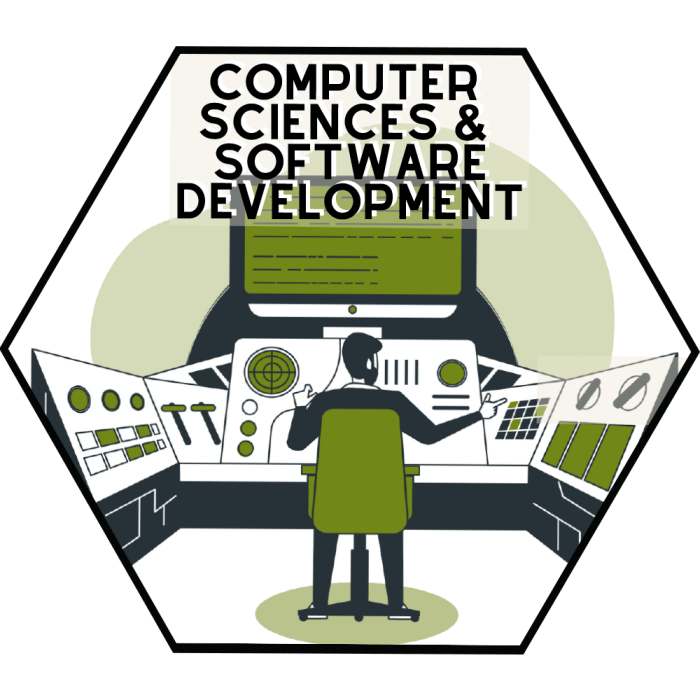Computer science for innovators and makers empowers individuals with the knowledge and tools to transform their ideas into tangible products and solutions. This emerging field combines the fundamental principles of computer science with the hands-on approach of making, fostering a mindset of innovation and problem-solving.
By understanding the foundational concepts of algorithms, data structures, and programming languages, innovators can develop computational solutions to real-world challenges. Makers, equipped with essential hardware and software tools, can leverage their technical skills to create prototypes, automate processes, and bring their creations to life.
Foundational Concepts for Innovators
Computer science underpins the digital age, empowering innovators with the tools and knowledge to transform ideas into reality. This section explores the fundamental principles of computer science, including algorithms, data structures, and programming languages, providing a solid foundation for understanding the field’s capabilities.
Algorithms
Algorithms are step-by-step procedures that solve specific problems. They define the logical sequence of operations to be performed on input data to produce the desired output. Algorithms play a crucial role in computer science, as they enable computers to perform complex tasks efficiently and accurately.
Data Structures
Data structures are organized ways of storing and managing data in computer memory. They determine how data is stored, accessed, and updated. Choosing the appropriate data structure is essential for optimizing the performance of computer programs.
Programming Languages
Programming languages are formal languages used to create instructions for computers. They allow programmers to express algorithms and data structures in a way that computers can understand and execute. Different programming languages are designed for specific purposes and offer varying levels of abstraction and expressiveness.
Tools and Technologies for Makers: Computer Science For Innovators And Makers

Makers rely on a diverse range of hardware and software tools to bring their ideas to life. This section provides an overview of essential tools and technologies used in computer science, highlighting their capabilities and limitations.
Hardware Tools
Hardware tools include physical devices such as computers, microcontrollers, sensors, and actuators. These devices provide the physical infrastructure for running computer programs and interacting with the physical world.
Software Tools
Software tools include programming environments, compilers, debuggers, and simulation software. These tools assist programmers in developing, testing, and deploying computer programs.
Applications in Innovation and Making

Computer science drives innovation across industries, empowering makers to create new products, solve problems, and improve processes. This section explores successful case studies of makers using computer science to make a tangible impact.
Product Development
Computer science enables makers to design and develop innovative products, from smart home devices to wearable technologies. By leveraging computer-aided design (CAD) software, simulation tools, and prototyping platforms, makers can bring their ideas to life efficiently.
Problem Solving, Computer science for innovators and makers
Computer science provides tools and techniques for solving complex problems. Makers use algorithms, data structures, and programming languages to develop solutions for real-world challenges, such as optimizing manufacturing processes, predicting demand, and analyzing data.
Process Improvement
Computer science can enhance existing processes by automating tasks, optimizing workflows, and providing real-time insights. Makers can use software tools to streamline production lines, improve supply chain management, and enhance customer experiences.
Collaboration and Community

Collaboration and community building are vital in computer science for innovators and makers. This section emphasizes the importance of connecting with others to share ideas, learn from experts, and contribute to the field.
Online Communities
Online communities provide platforms for makers to connect with each other, share projects, and seek support. Forums, social media groups, and online repositories foster collaboration and knowledge sharing.
Open-Source Software and Hardware
Open-source software and hardware empower makers to build upon existing projects and collaborate with others. Open-source resources promote innovation, reduce development costs, and encourage community involvement.
Ethical Considerations

The use of computer science in innovation and making raises ethical implications that must be carefully considered. This section highlights important ethical considerations and provides guidelines for responsible decision-making.
Privacy and Security
Computer science tools can collect and process personal data. Makers must prioritize data privacy and security by implementing appropriate measures to protect user information.
Responsible Use of Technology
Makers should use computer science responsibly to avoid unintended consequences. Ethical considerations include avoiding bias, ensuring accessibility, and mitigating potential risks.
Questions and Answers
What are the benefits of computer science for innovators and makers?
Computer science provides innovators and makers with a powerful toolkit for solving problems, automating tasks, and creating new products and services.
What are some examples of how computer science is used in innovation and making?
Computer science is used in a wide range of applications, from developing self-driving cars to designing personalized medical treatments.
What are some of the ethical considerations that innovators and makers should be aware of?
Innovators and makers should consider the potential impact of their creations on society, including issues such as privacy, security, and bias.